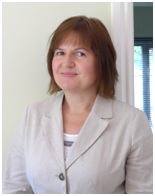Re-skilling Language Learners for a Mobile World
For the main paper, click here.
 Agnes Kukulska-Hulme, Professor of Learning Technology and Communication, The Open University
Agnes Kukulska-Hulme, Professor of Learning Technology and Communication, The Open University
Executive Summary: Ubiquitous access to mobile phones and other portable devices means that language learning increasingly straddles classroom-based learning and learning outside the classroom, in virtual spaces and out in the world. We know from studies of emergent learner-led practices that foreign language study can be enriched through easy access to resources selected to suit individual interests or needs. Yet learners’ choices seem largely determined by what they happen to come across, rather than knowledge about which language skills are best improved through mobile learning. Existing mobile applications often fail to exploit connections between life and learning. This paper suggests which language skills can be enhanced through mobile learning and how learner-technology interaction supports that development, particularly opportunities for learners to extend or practice their communication with others. The paper also suggests that new skills may be required in relation to the next generation of wearable devices and increasingly instrumented, technology-rich surroundings where use of mobile technology integrates with other tools, resources, and social networks that continue to challenge traditional knowledge and skills.
Discussion of this paper provided by: Richard Boyum, University Partnership and Grants Evaluation Coordinator for Afghanistan and Pakistan, US State Department, USA
Read the discussion by clicking here.
Discussion of this paper provided by: Sky Lantz-Wagner, ESL Instructor, University of Dayton, USA
Read the discussion by clicking here.
Terms of Use and Disclaimer: TIRF is providing this information as a service to our constituents, and no endorsement by TIRF of the ideas presented in this paper is intended or implied. The information is made available free of charge and may be shared, with proper attribution. However, the papers may not be reprinted without express written permission from TIRF.

